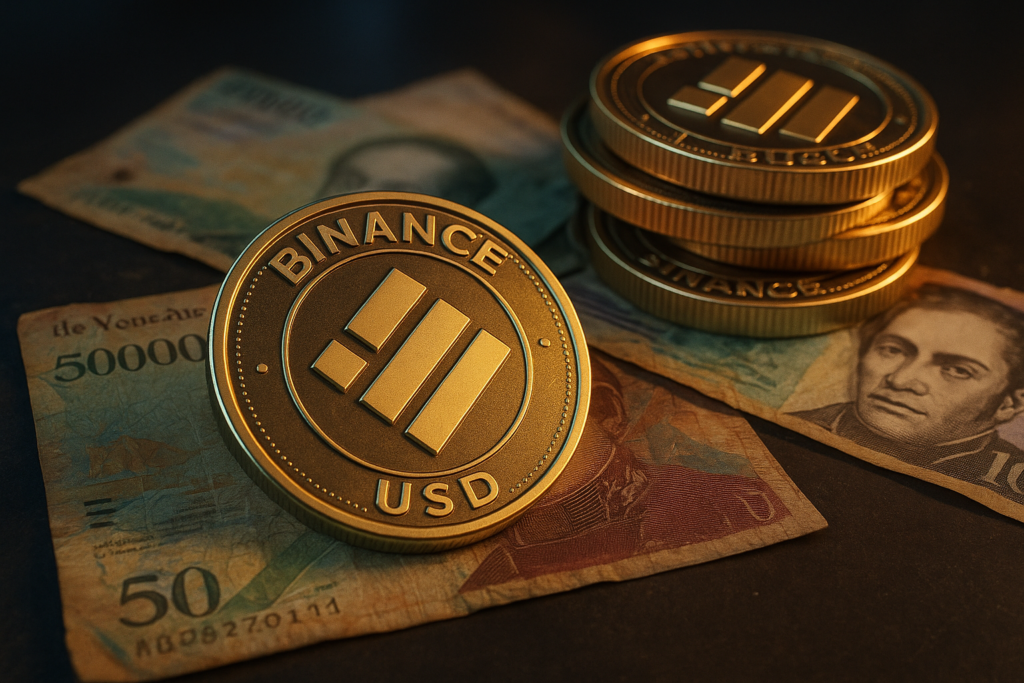“Binance dollars” become everyday money for payments, salaries, and groceries
Venezuela’s national currency, the bolívar, is rapidly losing relevance in daily commerce as inflation climbs to 229% annually. Stablecoins such as Tether’s USDt, often called “Binance dollars” locally, have become the preferred medium of exchange for millions of Venezuelans.
From groceries to salaries in stablecoins
Once used only by crypto-savvy individuals, USDt is now accepted for groceries, condo fees, salaries, and vendor payments. “People and companies prefer to price their goods and services in USD, and receive payment for the same in USD,” explained Mauricio Di Bartolomeo, a Venezuelan entrepreneur who left the country before co-founding crypto lending platform Ledn. He emphasized that stablecoins now act as both a better version of the dollar and a financial equalizer across social classes.
Parallel exchange rates fuel stablecoin dominance
Venezuela’s economy is fragmented by multiple exchange rates. The official Central Bank rate sits at 151.57 bolívars per USD, while the parallel market rate is 231.76. On Binance, USDt trades at 219.62 bolívars, a figure that most vendors and consumers rely on due to its liquidity and reliability.
With the bolívar largely shunned, stablecoins have become the most practical hedge against rapid devaluation. Businesses, from small bodegas to mid-sized firms, now settle payments almost exclusively in digital dollars.

Crypto adoption accelerates
According to the 2025 Global Crypto Adoption Index, Venezuela ranks 18th worldwide and 9th on a per-capita basis. Stablecoins made up 47% of all local crypto transactions under $10,000 in 2024, while total crypto activity surged by 110% last year.
Even everyday services—security, gardening, and building fees—are quoted in stablecoins. Although state-linked firms remain tied to the Central Bank’s official rate, most economic actors prefer the efficiency of USDt.
Capital controls deepen reliance on stablecoins
Government-imposed restrictions on foreign currency access have intensified demand for digital assets. “Capital controls also create a parallel market for cash and stablecoins, as economic actors refuse to accept the worthless local currency,” Di Bartolomeo noted.
For Venezuelans, crypto is rising where fiat has failed, echoing patterns in Argentina, Turkey, and Nigeria, where citizens increasingly rely on stablecoins amid economic instability.
Disclaimer
This content is for informational purposes only and does not constitute financial, investment, or legal advice. Cryptocurrency trading involves risk and may result in financial loss.

